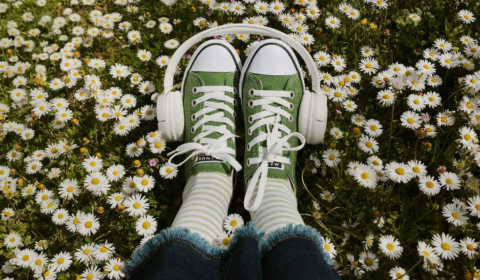‘We’re trying our best,’ said organiser Emily Eavis as she unveiled the first 54 names on the 2023 line-up and called on the music industry to rectify its ‘pipeline’ problem.
Without a doubt the most iconic festival in the world, Glastonbury’s annual line-up announcement traditionally marks a very exciting date on the calendars of those fortunate enough to acquire a ticket (this year’s sold out at a record speed of under an hour).
However, 2023’s unveiling painted a slightly different picture, with fans disappointed by the news that, come June, the long-anticipated five-day event will be headlined by all-male, all-white, acts.
This frustration – which many have taken to social media to vocalise – could even be felt from the announcer herself.
‘We’re trying our best,’ apologised organiser Emily Eavis upon sharing that Arctic Monkeys, Guns N’ Roses, and Elton John have been chosen to grace the Pyramid stage from Friday 23 to Sunday 25.


Discussing the fact that 53 per cent of the 55 acts revealed so far are men, she made it clear that she had endured an uphill battle to book an even split of artists as part of her pledge for gender parity.
Somewhat unsurprising given that in 2022, a YouGov survey found that only one in 10 headliners at the UK’s top festivals were women. Of 200 headline acts, just 26 were female, one identified as non-binary, 24 had a mixed line-up, and the rest (149) were either male solo artists or all-male bands.
Eavis blames this struggle to ensure more women be featured in festival line-ups on a ‘pipeline’ problem that she believes the music industry desperately needs to rectify.
‘This starts way back with the record companies, radio. I can shout as loud as I like but we need to get everyone on board,’ she said, referring to last year’s gender and racial disparity report into UK radio which found that UK male solo artists occupied the Top 100 more than three times as often as female solo artists, and were present in 80 per cent of all Top 100 singles.
Situations like this year's Glastonbury lineup are a direct symptom of industry failures to support female artists from the ground up. Getting them on the smaller stages, on radio, at live venues.
— Roisin O'Connor (@Roisin_OConnor) March 3, 2023
She argues that the sector must invest in more female musicians to create a dearth of viable future headliners rather than continue putting little effort into helping them achieve any kind of longevity.
If it doesn’t start being proactive about championing new talent, she warns the UK risks losing its status as a global music force.
‘It’s top of our agenda, and it probably makes it a bit harder because we’ve decided to make that important to us. To be honest, sometimes it’s easier to keep your head down,’ said Eavis.
‘I remain entirely focused on balancing our bill. It’s not just about gender, it’s about every aspect of diversity.’

















